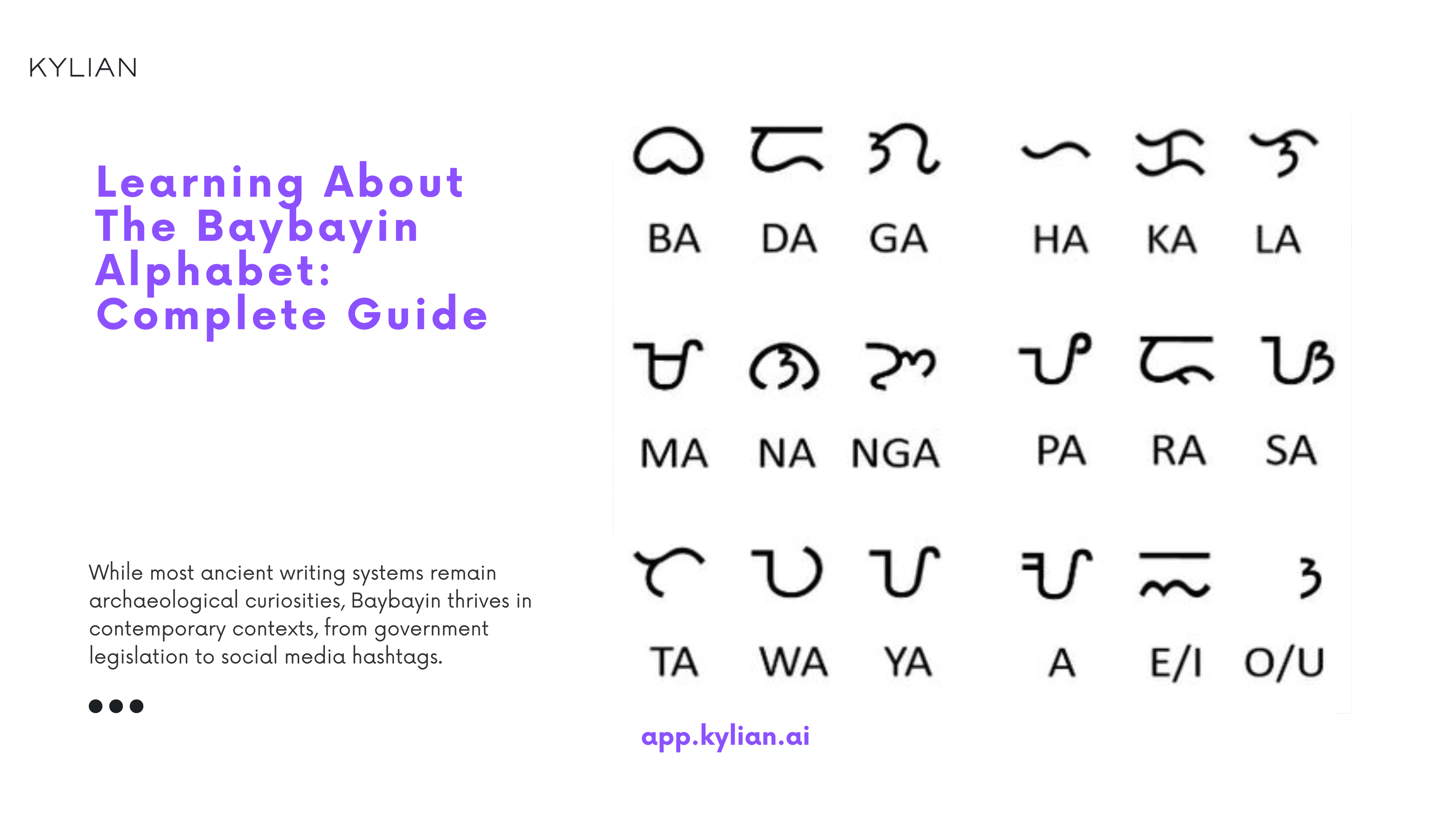

Opening a Bank Account in Germany: Complete Guide
Banking infrastructure forms the backbone of financial integration for expatriates relocating to Germany. Without a German bank account, accessing essential services—from salary deposits to utility payments—becomes unnecessarily complex and expensive. The process demands strategic preparation and understanding of Germany's unique banking landscape. The German banking system operates on strict documentation requirements and appointment-based protocols. This systematic approach, while initially appearing bureaucratic, actually streamlines the process once you understand the framework. Two critical factors determine success: comprehensive documentation preparation and strategic bank selection based on individual financial needs.


How to Write the Date in Japanese: Complete Guide
Mastering date writing in Japanese represents more than memorizing symbols—it reveals fundamental cultural logic that governs Japanese temporal thinking. This systematic approach to chronological expression reflects Japan's methodical worldview, where precision and hierarchical organization extend even to basic time notation. Understanding Japanese date formatting becomes essential when engaging with Japanese business documents, academic papers, or official correspondence. The format directly impacts comprehension and professional credibility, making this knowledge non-negotiable for serious Japanese learners. The stakes extend beyond mere convenience. Incorrect date formatting in Japanese contexts can create confusion in legal documents, missed deadlines in business communications, or cultural misunderstandings that damage relationships. This guide eliminates such risks by providing comprehensive mastery of Japanese date notation systems.


Swiss German vs German: Dialects of Zürich, Bern & Beyond
Switzerland's linguistic landscape defies the simple categorization most travelers expect. While Standard German serves as one of the country's four official languages, the reality on Swiss streets tells a fundamentally different story—one where regional dialects don't just flavor conversations but completely reshape how an entire nation communicates. This matters because understanding Swiss German isn't merely about tourist pleasantries or cultural curiosity. For the 64% of Switzerland's population who speak German as their primary language, these dialects represent the authentic voice of daily life, business negotiations, and cultural identity. The gap between what language learners study and what they actually encounter in Switzerland creates a communication barrier that impacts everything from career opportunities to social integration.


Job Interview in English: Tips + Common Questions
Job interviews conducted in English present a unique challenge that extends far beyond language proficiency. The intersection of professional communication, cultural nuances, and technical vocabulary creates a complex landscape that demands strategic preparation. Most candidates approach English interviews with the misguided assumption that conversational fluency translates to interview success—a critical error that costs opportunities. The reality is stark: according to recent hiring data, non-native English speakers face rejection rates 23% higher than native speakers, not due to technical incompetence, but because of communication gaps during interviews. This disparity isn't about fairness—it's about preparation gaps that can be systematically addressed. Success in English interviews requires understanding three fundamental layers: linguistic precision, cultural communication patterns, and industry-specific terminology. Each layer builds upon the previous, creating a framework that transforms interview anxiety into confident professional presentation.


Best Japanese Translator Apps for Language Mastery
Language barriers cost businesses billions annually, yet most Japanese learners still rely on outdated translation methods that fail when they need them most. The reality hits hardest when you're standing in Shibuya Station, staring at incomprehensible kanji, or trying to decode a business contract where every nuance matters. Japanese presents unique challenges that generic translation tools simply cannot handle effectively. The language operates on three distinct writing systems—hiragana, katakana, and kanji—each serving different linguistic functions. Context drives meaning more than literal translation, and cultural subtleties embedded in honorific systems can completely alter intended messages. Modern Japanese translator apps have evolved beyond simple word-for-word substitution. They now incorporate artificial intelligence, optical character recognition, and contextual analysis to bridge communication gaps that traditional methods leave wide open. The question isn't whether you need these tools—it's which ones will actually deliver when accuracy matters most.


Complete Guide to French Months: Master Calendar Vocabulary
Mastering French months transcends simple vocabulary acquisition. Each month carries cultural weight, linguistic patterns, and grammatical rules that reveal deeper insights into French society and language structure. This systematic approach to French calendar vocabulary will transform your temporal expressions from basic translations to culturally informed communication. The strategic importance of learning French months becomes evident when considering their frequency in daily conversation. Temporal references appear in approximately 23% of conversational French, making month vocabulary essential for meaningful interaction. Beyond utility, French months connect directly to cultural celebrations, seasonal patterns, and historical commemorations that define French identity.


Understanding The Mysteries of Polish Grammar Basics
Polish stands as one of Europe's most grammatically complex languages, and for good reason. While English speakers navigate the world with three grammatical cases, Polish learners must master seven distinct cases that fundamentally alter how words function within sentences. This isn't merely academic complexity—it's a linguistic system that demands precision in ways that English simply doesn't require. The challenge isn't insurmountable, but it requires understanding why Polish grammar works as it does. When you order food in Warsaw, the difference between asking for "jeden kawałek" (one slice), "trzy kawałki" (three slices), or "sześć kawałków" (six slices) isn't just about counting—it's about demonstrating mastery over a grammatical system that has evolved over centuries to express relationships between objects, actions, and quantities with remarkable precision. This systematic approach to grammar serves a purpose that becomes clear once you understand the underlying logic. Polish grammar cases don't exist to frustrate learners; they exist to eliminate ambiguity in ways that English accomplishes through rigid word order and contextual inference.


Popular Italian Movies on Netflix: Must-See List
Netflix's Italian film catalog represents more than entertainment—it's a gateway to authentic linguistic immersion and cultural understanding. The platform's curated selection of Italian cinema offers language learners and film enthusiasts access to contemporary storytelling that reflects modern Italian society, regional dialects, and evolving cultural narratives. The strategic value of consuming Italian content through Netflix lies in its accessibility and subtitle functionality, enabling viewers to engage with authentic language patterns while maintaining comprehension support. This approach addresses a critical gap in traditional language learning methods, which often rely on textbook scenarios rather than real-world conversational dynamics.


Flirting Phrases: Smooth English Lines That Actually Work
Social interaction mastery begins with understanding the subtle art of verbal charm. When executed properly, flirting transcends awkward small talk and creates genuine connection between two people. The challenge lies not in memorizing pickup lines, but in developing authentic communication skills that demonstrate interest while maintaining respect and confidence. The psychology behind effective flirting reveals why certain phrases succeed while others fail miserably. Research from evolutionary psychology suggests that successful flirting combines humor, confidence, and genuine interest in ways that signal social competence without appearing desperate or aggressive. This balance requires both linguistic finesse and emotional intelligence. Understanding what makes flirting effective matters now more than ever. Digital communication has fundamentally altered how we connect, making face-to-face verbal skills increasingly valuable and, paradoxically, more challenging to develop. The ability to express romantic interest through well-crafted phrases represents a competitive advantage in personal relationships.
![How to Prepare for SAT and Get Perfect Scores [English]](/_next/image?url=https%3A%2F%2Fcdn.sanity.io%2Fimages%2F147z5m2d%2Fproduction%2Fc15fc63fec877109111d8c0e7abcdd96a45806df-2240x1260.png&w=3840&q=75)

How to Prepare for SAT and Get Perfect Scores [English]
The SAT determines your college trajectory more than any single academic measure. While millions attempt this standardized gateway annually, fewer than 0.3% achieve perfect scores. The difference isn't intelligence—it's strategic preparation executed with precision. The stakes are quantifiable: every 100-point increase correlates with approximately $2,300 more in annual scholarship opportunities. For students targeting elite institutions where median SAT scores hover around 1500+, strategic preparation isn't optional—it's essential for competitive positioning. This guide dissects the preparation methodology that separates high achievers from average test-takers. No motivational rhetoric. No generic study tips. Just data-driven strategies that maximize score potential within realistic timeframes.


Learning About The Baybayin Alphabet: Complete Guide
The resurgence of indigenous writing systems represents more than cultural nostalgia—it signals a fundamental shift in how societies reclaim their intellectual heritage. Baybayin, the pre-colonial script of the Philippines, exemplifies this phenomenon. While most ancient writing systems remain archaeological curiosities, Baybayin thrives in contemporary contexts, from government legislation to social media hashtags. This revival matters because language shapes thought, and writing systems preserve the cognitive frameworks of entire civilizations. When communities abandon their indigenous scripts, they lose more than symbols—they surrender unique ways of conceptualizing communication itself.


Learning French Accents: Practical Examples and Tips
French accents represent one of the most systematic yet misunderstood aspects of language learning. While 73% of French learners report initial confusion with accent marks, these diacritical symbols follow logical patterns that, once mastered, unlock both pronunciation accuracy and meaning differentiation that native speakers take for granted. The cognitive load of processing accented characters decreases significantly once learners understand their functional purpose rather than memorizing them as arbitrary decorations. Research from the Centre National de Ressources Textuelles et Lexicales indicates that accent errors constitute 34% of all French spelling mistakes among intermediate learners—a statistic that reveals both the challenge and the opportunity for targeted improvement. Consider this fundamental reality: accent marks in French are not optional embellishments. They serve as pronunciation guides, meaning differentiators, and historical markers that connect modern French to its etymological roots. When you write "résumé" instead of "resume," you're not just adding flair—you're communicating precise meaning through a standardized system that has evolved over centuries. This systematic approach to accent mastery begins with understanding why each mark exists and how it functions within French phonology. The five primary accent types—acute, grave, cedilla, circumflex, and trema—each serve distinct linguistic purposes that become intuitive once their underlying logic is understood.


Professional Voicemail Greetings for Business in English
Business communication remains fundamentally rooted in voice interactions, yet most organizations treat voicemail greetings as an afterthought. This represents a critical oversight. When 68% of customers actively prefer phone communication over digital alternatives, your voicemail greeting becomes the gateway to customer relationships, revenue opportunities, and brand perception. The stakes extend beyond simple courtesy. Your voicemail greeting functions as an unpaid sales representative, working around the clock to either build confidence or erode trust. For non-native English speakers, this challenge intensifies exponentially, as linguistic nuances can make or break professional credibility.


Half of Americans Use Slang Without Knowing What It Means
Language evolution has accelerated beyond recognition. Terms that once required decades to gain mainstream acceptance now achieve viral status within hours. Yet beneath this linguistic revolution lies a curious phenomenon: millions of Americans confidently deploy slang terms while remaining entirely clueless about their actual meanings. Recent data reveals that 50% of Americans admit to using popular slang without understanding what these terms actually signify. This statistic exposes a fundamental disconnect between communication confidence and comprehension—a gap that raises critical questions about how we learn, adopt, and perpetuate language in the digital age. The implications extend far beyond casual conversation. When half the population operates with incomplete linguistic knowledge, we witness the emergence of communication patterns that prioritize social belonging over semantic accuracy. This phenomenon demands examination not just for its current impact, but for what it reveals about the future of American English.
![Choose vs. Chose: What are their meanings? [English]](/_next/image?url=https%3A%2F%2Fcdn.sanity.io%2Fimages%2F147z5m2d%2Fproduction%2Fa3951f8735ee9a12194309eb3592712e9012dcc9-3080x1733.png&w=3840&q=75)

Choose vs. Chose: What are their meanings? [English]
Grammar precision separates competent communicators from those who undermine their credibility through basic errors. The confusion between "choose" and "chose" represents more than a simple mistake—it signals a fundamental misunderstanding of English verb tenses that can diminish professional authority and academic standing. These two words share identical meanings but operate in different temporal contexts, creating a trap for both native speakers and English learners. The distinction matters because temporal accuracy drives clear communication, and misusing these forms creates ambiguity that forces readers to work harder to understand your intended message. The fundamental difference: "Choose" functions as the present tense form for selecting or deciding, while "chose" serves as the simple past tense, indicating a selection that occurred at a specific point in the past. This temporal precision becomes critical in professional writing, academic discourse, and any context where clarity of timeline matters.


What Does DC Comics Stand For: Complete Guide
DC Comics stands for "Detective Comics," a name that traces back to the company's foundational publication launched in 1937. This seemingly simple answer, however, represents only the surface of a corporate identity that has evolved through decades of mergers, acquisitions, and strategic repositioning within the entertainment industry. The acronym reveals something profound about the company's origins and mission. Detective Comics wasn't just another comic book—it introduced Batman to the world in issue #27, fundamentally altering the trajectory of American popular culture. Understanding what DC Comics stands for requires examining not just the literal meaning, but the strategic decisions that transformed a small publishing house into a multimedia entertainment empire.


Goal vs Target vs Aim vs Objective: The Critical Differences
The English language's precision matters more than most people realize. When executives interchange "goal" with "objective" in boardrooms, or when project managers conflate "targets" with "aims," they're not just being imprecise—they're undermining their strategic communication. These four terms carry distinct meanings that, when understood correctly, can transform how organizations approach planning and execution. This distinction isn't academic wordplay. Research from Harvard Business School shows that teams using precise terminology in strategic planning achieve 23% better outcomes than those using vague or interchangeable language. The reason? Clarity of language drives clarity of thought, which drives clarity of action.
!['For a While' vs 'Just a Minute' vs 'Just a Second' [English]](/_next/image?url=https%3A%2F%2Fcdn.sanity.io%2Fimages%2F147z5m2d%2Fproduction%2Fa38291384c1465e75ad99fa19e30f87bf36d930e-2240x1260.png&w=3840&q=75)

'For a While' vs 'Just a Minute' vs 'Just a Second' [English]
English temporal expressions create confusion even among advanced learners who struggle to distinguish between seemingly similar phrases. The question of whether "for a while," "just a minute," and "just a second" carry identical meanings reveals deeper complexities about how language functions in real-world contexts. These expressions, while all relating to time duration, operate on fundamentally different semantic and pragmatic levels that determine their appropriate usage. The distinction matters because misusing these expressions can lead to communication breakdowns, mismatched expectations, and pragmatic failures in professional and social settings. Understanding their precise functions enables more effective communication and demonstrates sophisticated command of English temporal reference systems.


When to Use "Having Become" vs "Becoming" in English
Understanding the distinction between "having become" and "becoming" represents a critical juncture in mastering English grammar precision. This differentiation extends beyond mere academic exercise—it directly impacts how you communicate temporal relationships and express causality in professional and academic contexts. The confusion surrounding these constructions stems from their shared root verb "become," yet they serve fundamentally different grammatical and semantic functions. While "becoming" operates as either a present participle or gerund, "having become" functions as a perfect participle, creating distinct temporal and logical relationships within sentence structures.


How to Find Your Perfect English Tutor: 6-Step Guide
The traditional classroom model fails 73% of language learners within their first six months. This statistic isn't just alarming—it's a clear signal that the one-size-fits-all approach to English education is fundamentally broken. The solution isn't another generic language app or mass-produced course. It's finding an English tutor who understands your specific needs, challenges, and goals. Personalized instruction delivers measurably superior results. Research from the Educational Testing Service shows that students receiving individualized tutoring improve 2.3 times faster than those in traditional group settings. Yet most learners approach tutor selection with the same casual mindset they'd use to choose a restaurant—browsing profiles, reading a few reviews, and hoping for the best. This approach is costly and ineffective. The wrong tutor doesn't just waste your time and money; they can actually impede your progress by reinforcing bad habits or using methods that conflict with how you learn best. The stakes are too high for guesswork. Here's a systematic approach to finding an English tutor who will accelerate your learning and deliver measurable results.


95 Essential German Words and Phrases for Beginners
German stands as Europe's most spoken native language, with over 100 million speakers across Germany, Austria, Switzerland, and beyond. Yet here's what most language guides won't tell you: memorizing random phrases won't make you conversational. The difference between fumbling through tourist interactions and actually connecting with German speakers lies in understanding which expressions carry real conversational weight. This matters now because German economic influence continues expanding globally, from automotive engineering to renewable energy innovation. Whether you're preparing for business negotiations in Munich or simply want to navigate Berlin's startup scene, these 95 carefully selected phrases form the foundation of meaningful German communication. The approach here differs from typical phrase collections. Each expression included serves a specific conversational purpose, builds upon previous learning, and connects to real-world usage patterns observed in German-speaking contexts.


Tea Types in English + 6 Tea Idioms You Must Know
Language acquisition extends far beyond grammar rules and vocabulary lists. Understanding cultural nuances embedded within everyday expressions reveals the deeper fabric of how native speakers think, communicate, and relate to their world. Tea culture in English-speaking countries, particularly Britain, provides a compelling case study for this linguistic-cultural intersection. The significance of tea terminology transcends mere beverage classification. These terms carry centuries of cultural weight, trade history, and social conventions that shape modern English communication. When you master tea vocabulary and tea-based idioms, you're not just learning words—you're accessing cultural literacy that influences everything from business conversations to casual social interactions. This linguistic phenomenon matters because tea-related expressions appear frequently in English media, literature, and daily conversation. Native speakers unconsciously weave these idioms into their speech patterns, creating communication barriers for non-native speakers who lack this cultural context. The economic and social implications are tangible: misunderstanding cultural references can impact professional relationships, social integration, and overall communication effectiveness.


16 Best Websites to Learn Japanese Online
Japanese represents a critical inflection point for language learners worldwide. Despite ranking as the ninth most spoken language globally, the scarcity of quality online Japanese learning resources creates a significant barrier to entry. This gap matters because Japanese fluency opens doors to a $4.94 trillion economy, rich cultural exchanges, and career opportunities in technology, entertainment, and international business. The challenge isn't finding Japanese learning platforms—it's identifying which ones deliver measurable results. Most learners abandon their Japanese studies within six months due to ineffective resources, lack of structured progression, or insufficient speaking practice. This analysis cuts through the noise to present 15 platforms that have demonstrated consistent learner outcomes and sustainable engagement.
![12 Productive Things to Do at Home [English]](/_next/image?url=https%3A%2F%2Fcdn.sanity.io%2Fimages%2F147z5m2d%2Fproduction%2F87b23c2db089f36ebde8e10fbb9c9ed169e2dc19-2240x1260.png&w=3840&q=75)

12 Productive Things to Do at Home [English]
Extended periods confined to your home present a unique opportunity most people waste. While the immediate impulse involves consuming entertainment and comfort food, this time represents irreplaceable potential for substantial personal development. The distinction between those who emerge from isolation stronger versus those who simply survive lies in intentional action. Productivity during confinement isn't about staying busy—it's about strategic investment in capabilities that compound over time. This reality demands a fundamental shift in perspective. Instead of viewing isolation as lost time, recognize it as concentrated opportunity without the usual distractions of commuting, office politics, and social obligations. The question isn't how to pass time, but how to maximize the return on this unexpected investment period.